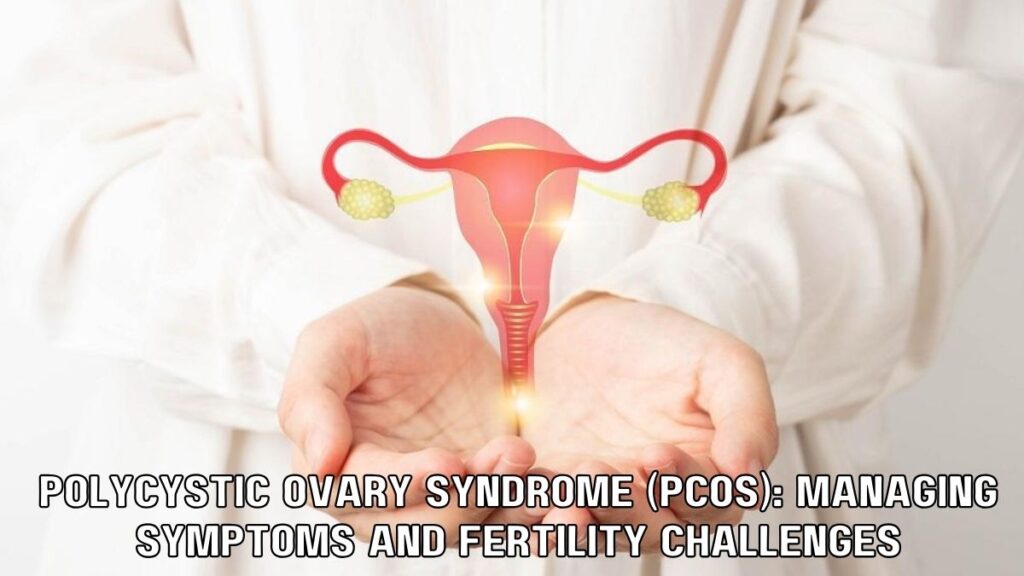Introduction
Polycystic Ovary Syndrome (PCOS) is a common hormonal disorder that affects people with ovaries, often during their reproductive years. PCOS can bring about a range of symptoms, including irregular periods, hormonal imbalances, and difficulties with fertility. In this blog post, we’ll explore PCOS, its symptoms, diagnosis, and various strategies for managing both the symptoms and the fertility challenges it presents.
Understanding PCOS
PCOS is characterized by the presence of small cysts on the ovaries, which are actually follicles that have not matured properly. These cysts can lead to hormonal imbalances that can affect a person’s menstrual cycle, appearance, and overall health. While the exact cause of PCOS is still not fully understood, genetics and insulin resistance are believed to play significant roles in its development.
Common Symptoms of PCOS
- Irregular Menstrual Cycles: PCOS often causes irregular periods or even missed periods.
- Hirsutism: Excess hair growth on the face, chest, and back due to elevated androgen (male hormone) levels.
- Acne and Oily Skin: Hormonal imbalances can lead to acne and excessively oily skin.
- Weight Gain: Many individuals with PCOS struggle with weight gain or obesity, which can exacerbate other symptoms.
- Infertility: PCOS is a leading cause of female infertility due to irregular ovulation or anovulation (lack of ovulation).
Diagnosing PCOS
Diagnosing PCOS typically involves a combination of the following:
- Medical History: Your healthcare provider will discuss your symptoms, menstrual history, and family history.
- Physical Exam: A physical exam may reveal signs such as excess hair growth or acne.
- Blood Tests: Hormone levels, including androgens and insulin, may be measured.
- Pelvic Ultrasound: An ultrasound of the ovaries can reveal the presence of cysts or other abnormalities.
Managing PCOS Symptoms
While there is no cure for PCOS, various strategies can help manage its symptoms:
- Lifestyle Changes: Maintaining a healthy weight through diet and exercise can improve insulin sensitivity and hormone balance.
- Medications: Birth control pills or hormone-regulating medications may be prescribed to regulate menstrual cycles and reduce androgen levels.
- Anti-Androgen Medications: These can help manage symptoms like excess hair growth and acne.
- Fertility Treatments: If you’re trying to conceive, your healthcare provider may recommend fertility treatments such as ovulation-inducing medications or in vitro fertilization (IVF).
Conclusion
PCOS can be a challenging condition to manage, but with the right medical care, lifestyle adjustments, and support, individuals with PCOS can lead healthy and fulfilling lives. If you suspect you have PCOS or are experiencing any of its symptoms, seek guidance from a healthcare provider who can provide a proper diagnosis and develop a personalized treatment plan tailored to your needs and goals. Remember, managing PCOS is about taking proactive steps to optimize your health and well-being.

